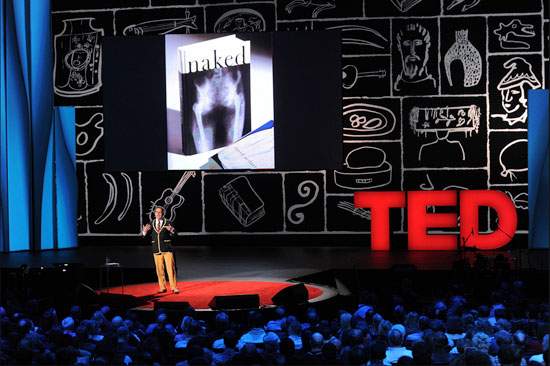The Seven Best TED Talks So Far This Year
With a new TED Talk posted every weekday, there is certainly no shortage of brilliance shared on the TED site.
With a new TED Talk posted every weekday, there is certainly no shortage of brilliance shared on the TED site.
We are regularly amazed by the genius and passion of the thought leaders who grace the stage at ideas conference. Here, we have rounded up seven of the best TED Talks delivered in 2012 thus far.
'The $8 Billion iPod' by Rob Reid
Reid delivers an enlightening look at 'copyright math' (TM), a new field of study that analyzes the state of the entertainment industry based on numbers from entertainment lawyers and lobbyists.
'Why I Must Speak Out About Climate Change' by James Hanson
Climate scientist Hanson tells of his involvement in the debate over global climate change, revealing and outlining his intense worry about the future of the planet.
'The Power of Introverts' by Susan Cain
Cain points out the shamefulness society has assigned to introverts, prizing outgoing qualities and overlooking the immense talents introverts can offer.
'We Need to Talk About an Injustice' by Bryan Stevenson
Stevenson reveals difficult truths about the American justice system, challenging racial discrimination in the criminal justice system, as well as social apathy towards the issue.
'Religion, Evolution and the Ecstasy of Self-Transcendence" by Jonathan Haidt
Psychologist Haidt explores the human fascination with self-transcendence, hypothesizing on the scientific reasoning behind our obsession with 'losing ourselves'.
'Robots That Fly...And Cooperate' by Vijay Kumar
Within his University of Pennsylvania lab, Kumar has been building small robots that fly, sense each other, and form teams autonomously. Like a flock of birds, these multi-robot formations possess control and coordination, which Kumar studies in this talk.
'Abundance is Our Future' by Peter Diamandis
With all the doom and gloom talk of our civilisation's fate, Diamandis' optimism stands in stark contrast. Diamandis makes the case that, as a civilisation, we are capable of inventing innovations to cope with our changing world. He believes that we can, and will, conquer the challenges facing humanity today.





